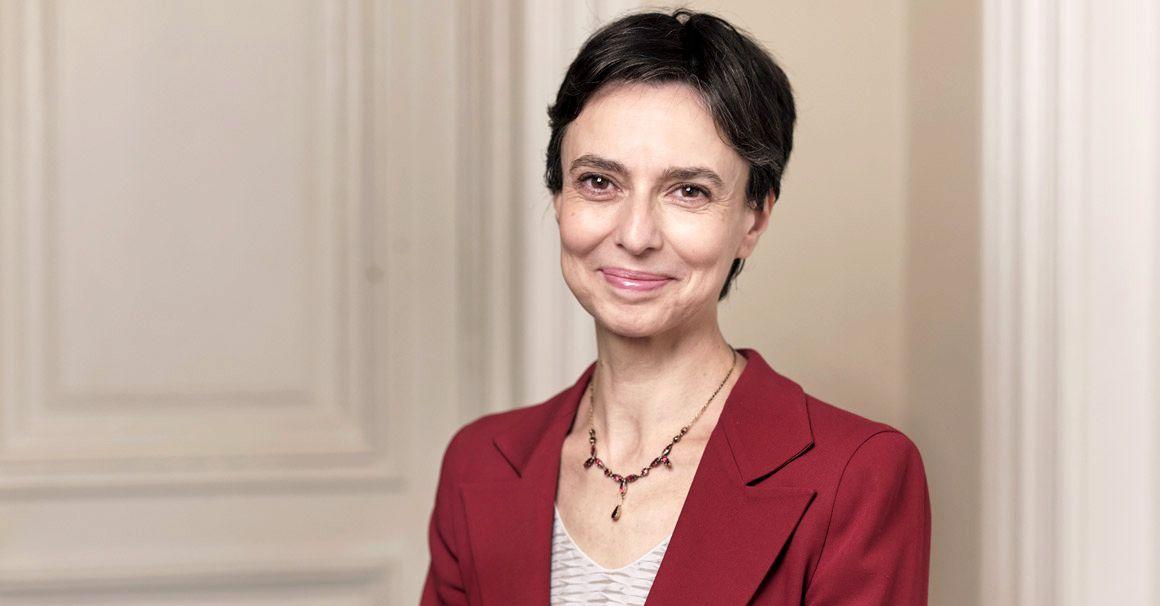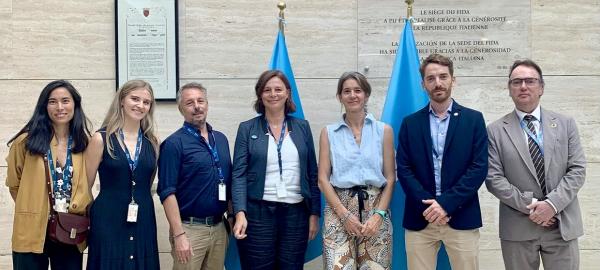Institutional news 8 December 2025
- Home
- CIRAD news
- News
- Elisabeth Claverie de Saint Martin RDD 2021
Elisabeth Claverie de Saint Martin: "The challenges are so huge that we must join forces and build coalitions of stakeholders committed to achieving the SDGs"

CIRAD Chief Executive Officer Elisabeth Claverie de Saint Martin © Arnaud Calais
What do you feel is the key issue for sustainable development? Are the SDGs the top priority?
Elisabeth Claverie de Saint Martin: CIRAD's remit entirely fits in with the concept of sustainable development. Our mandate is to help build a more sustainable world and achieve the SDGs. For us, that means developing farming and food systems that supply people with healthy food, guarantee a decent income for producers, and are resilient to global change – including climate change – while conserving biodiversity and natural resources .
Food security experts now put agriculture at the heart of human and global health. The climate crisis is a reality, and biodiversity loss is giving major cause for concern. We urgently need to radically transform the global food system. That transformation has two aims: to ensure food and nutrition security for all (SDG2) while reversing land and water resource degradation, and to restore the environment instead of degrading it even further. Our priority is therefore to work simultaneously towards SDGs 2, 13 (Climate change) and 15 (Preservation of life on land).
What are you actually doing within your organization to contribute actively to sustainable development?
E.C.: CIRAD works with a range of scientific and institutional partners to produce science that is useful, engaged and inclusive. That expertise also has benefits beyond the world regions in which we work directly (Africa, Latin America, Southeast Asia, Caribbean).
Our operations range in scale from individual plots to entire countries or major world regions (for instance the Sahel), through villages, valleys and communities. On a State level, we support public policy building, from pinpointing the issues to drafting solutions. We lead or participate in more than 800 projects a year, some of which are extremely ambitious and have budgets of more than 10 million euros, funded for example by the European Union, governments or foundations.
When it comes to the complex issues we work on, the word of science is crucial, since it is factual, substantiated and thorough. We can make diagnoses and suggest solutions that we have developed and know how to implement. This is why we are participating in this event.
Which players must we bring on board in order to achieve this transition? Why do we need to bridge the historical gap between the public and private sectors?
E.C.: CIRAD has always believed in bringing stakeholders together. Working in partnership with all sorts of partners – civil society through partnerships with NGOs and public institutions, and the private sector in the form of foundations, firms (appraisals, technology transfer, etc) – is in our history, our DNA.
Every stakeholder has their own specific skills, networks and field of operations. The challenges we face are so huge that we need to join forces and set up coalitions of players committed to achieving the SDGs, and particularly SDG17, centring on partnerships.
Today's challenges are global. They span the borders between countries and regions and between the public and private sectors. In many tropical and Mediterranean countries, the public authorities have limited resources. The private sector can provide financial support, but also technical expertise, equipment, etc. By working together, the two sectors can generate greater benefits and long-term positive impacts.
CIRAD has a long history of co-construction with some 100 countries and 200 institutions on every continent and in the French overseas regions.
This interview is also available (in French) on the 2020 Rencontres du développement durable website.



























